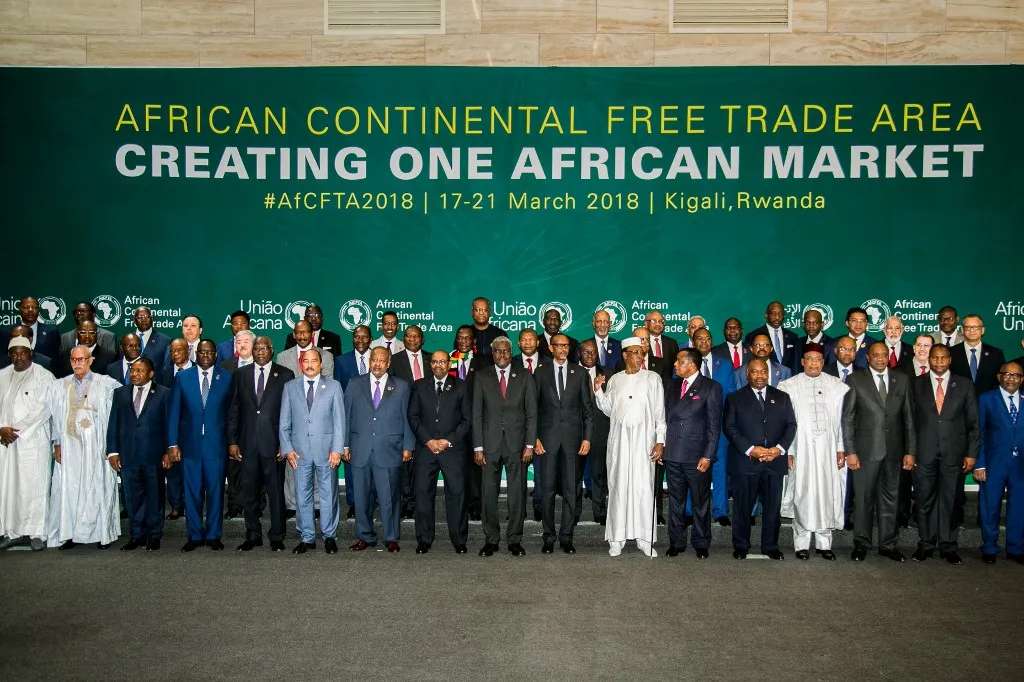Business
Leaders urge investment in single border posts, digital checkpoints to unlock AfCFTA potential

African development leaders and trade experts have renewed calls for urgent investment in modern border infrastructure and digital checkpoints to break persistent bottlenecks hindering the African Continental Free Trade Area (AfCFTA), warning that political inertia could stall the continent’s most ambitious economic integration project.
At the sixth Africa Resilience Forum, which opened in Abidjan on Wednesday, speakers stressed that the free flow of goods and people – critical to AfCFTA’s success – remains undermined by outdated checkpoints, corruption, and weak cross-border coordination.
“The ideal is to have a single border post between countries – if we were to have strong infrastructure like that, it would help facilitate trade,” said Mohammed Abdiker, Chief of Staff of the International Organization for Migration (IOM). Abdiker warned that infrastructure projects alone would fail without sustained political will.
“We must all work together, advocating to our governments on the importance of the movement of goods and people for a more integrated management of our borders,” he told delegates.
The IOM has piloted such systems before. A joint checkpoint between the Democratic Republic of Congo and Rwanda initially worked but later stalled. Abdiker revealed that a new project, supported by the African Development Bank (AfDB), is underway at the Central African Republic–Cameroon border.
AfCFTA ambition, border reality
Launched in 2021, AfCFTA is designed to boost intra-African trade and stimulate industrialisation across the continent. By January 2025, 49 African countries had ratified the deal, creating a market of 1.3 billion people. But the infrastructure gap remains glaring.
The AfDB has been financing One Stop Border Posts (OSBPs) to reduce customs delays and slash transaction costs. Projects in East and West Africa, including posts between Tanzania and Kenya, and a juxtaposed checkpoint between Benin and Togo, are already operational.
Yet, officials say fragmented systems, poor technology adoption, and entrenched rent-seeking still frustrate smooth operations.
The corruption chokehold
Magdalene Dagoseh, Liberia’s Minister of Commerce and Industry, pressed for urgent digitisation of border services to enhance transparency.
“As well as having a single border post at each of our borders, we will need to digitise border services,” she argued. “By digitising the various border points, we can fight corruption – we know how many people have left or entered, and this prevents other problems.”
Experts estimate that inefficiencies at African borders increase the cost of trade by up to 40%, putting local producers at a disadvantage compared to importers from outside the continent.
Informal trade: the invisible economy
Ziad Hamoui, President of Borderless Alliance, cautioned that ignoring Africa’s thriving informal sector could undermine formal integration efforts.
“Today, the volume of trade in the informal sector is higher than in the formal sector. So if you don’t know what’s going on at the borders, you won’t know how to manage it,” he said, calling for civil society involvement in shaping cross-border trade policies.
Hamoui warned that without stronger monitoring and inclusion of informal traders, illicit activity and smuggling will continue to thrive, eroding state revenues and investor confidence.
Resilience or rhetoric?
The Africa Resilience Forum, convened biennially by the AfDB, brings together policymakers, civil society, and humanitarian actors to address the continent’s overlapping challenges of fragility, conflict, and underdevelopment.
But this year’s discussions revealed a stark divide between AfCFTA’s lofty promises and on-the-ground realities. While political leaders sign trade protocols, actual traders still face long queues, bribery demands, and inconsistent border rules.
As Abdiker noted, the challenge is not just building the infrastructure but sustaining it with credible political will. Without decisive reforms, the single African market risks being reduced to what critics call “a paper agreement.”



